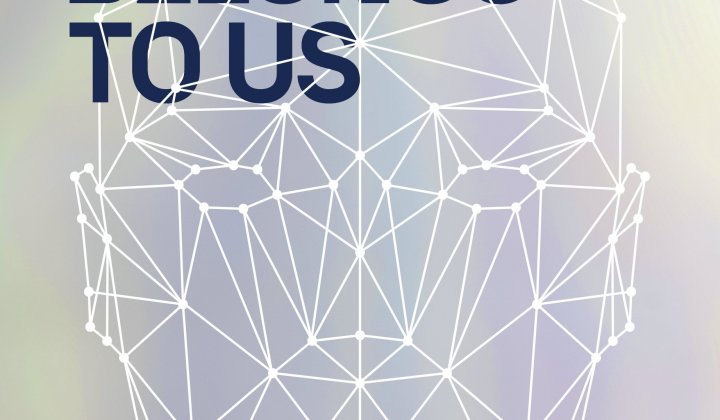Templeton's observation is not far removed from the result that GIBS MBA Roberta Toscano achieved in her MBA thesis, Board Members’ Attitudes to CEO Arrogance, in 2014. We found her research so fascinating that we picked up on it three years later, and wrote a paper detailing her findings. Our paper has now been accepted for publication by the European Business Review.
The purpose of the paper was to look at the effect an arrogant CEO will have on the attitudes of a company’s top management team.
Our finding was that there is an inverse or negative relationship between perceived CEO arrogance and the attitude of the executive management team or board.
This in itself may not be altogether surprising, but what we did find very surprising was that, on the other end of the scale, the character trait long touted as being essential for a good leader, namely extreme humility, was not altogether desirable either. Our paper concludes that what we need to strive for is the Goldilocks Principle: If CEOs are to be ‘just right’, then they should neither be too arrogant nor too humble, but rather somewhere in between.
A deeper understanding
The first thing to understand when reading a research paper is that academics are looking at very specific variables, so when we discuss the results of this research, we cannot generalise and apply the findings to situations that have very different scenarios, we can only apply it to the parameters which have been studied.
Bearing this in mind, when we look at this particular research we are specifically examining how the arrogance of a CEO will affect the functioning of his or her board. We defined arrogance as “a sense of superiority and exaggerated self-importance, acted out with an overbearing manner and presumptuous claims, from the Latin, arrogare, meaning “to claim credit that one is not entitled to.”
Arrogance is not considered to be a desirable character trait. As we said in the paper: “Ineffective leaders cause great misery for their followers and subordinates and arrogant leaders tend to cultivate an atmosphere of intimidation, stifling others’ ability to collaborate and communicate, resulting in toxic organisational environments.” We go on to say: “Characteristically an arrogant manager has a sense of superiority and presents himself as inaccessible and potentially unapproachable and does not listen well to others.”
We must also remember that arrogance in this definition is not synonymous with narcissism or hubris, pride or even exaggerated self-confidence. In this paper, we stuck to the strictest definition of arrogance.
In the same instance, we have employed a very fixed definition of humility which we defined as: “The lack of arrogance, a capacity to listen carefully, and egolessness.” Humble leaders will typically not promote themselves, but will rather put others first. “They are less focused on themselves and more likely to demonstrate self-transcendent attitudes than other leaders.”
It is also important to note that this paper focuses on the relationship between the CEO and his or her board or executive management team. We did not investigate how other employees, like those on the shop floor, for example, would respond to an arrogant CEO.
...the arrogance of a CEO directly affects the function of the board...
Although the research tested for a number of examples of how arrogant CEOs can cause dysfunction on a board, what we found was that there were, in fact, four key areas where there was a negative relationship between an arrogant CEO and the board. They are:
· Engagement, which manifests itself in many ways including enthusiasm for serving on the board, pride in being a board member, a willingness to invest time in board activities and decision-making;
· Cohesiveness, which makes the group attractive to its members, which in turn increases their motivation to be part of it and increases their resistance to leaving. Cohesion also makes board members more willing to partake and take ownership of strategic decisions. Another reason cohesion is important is that it makes members of the group feel more comfortable in expressing disagreement, thereby making all decisions a group effort;
· Collaboration, this is one of the most important attributes of a good CEO-board relationship, because collaboration is often directly related to a firm’s performance. Good collaboration also results in greater goodwill between the board and its CEO, as well as reducing potential aggression or hostility; and
· Consensual decision-making where everybody agrees that a decision is acceptable to them. This takes leadership, a lot of hard work and a robust level of discussion. Arrogance has a destructive effect on this dynamic and can disrupt team functioning.
We must remember, when we look at this research, that board members are peers of a CEO; they are not subordinates in the traditional sense to the CEO. For a CEO to perform his or her job to the best of their ability, they need to take into account the views of their board. In terms of top-tier management, the CEO needs the input of human resources, marketing, operations and finance, they need to work in concert to come to holistic solutions and the role of the CEO is to co-ordinate that in a constructive way.
Although the arrogance of a CEO directly affects the function of the board, it must also be noted that the attitude of the board may not necessarily directly affect the performance of the business. The business may perform despite its leadership. You can have a high-performing, highly dysfunctional group of people.
The method
Perhaps one of the most interesting aspects of this particular study and other research coming out of GIBS currently is our use of an experiential design. This means that we test our subjects in a laboratory setting. A business simulation, Execugame, replicates the challenges and dynamics faced by board members in a business environment. Using the game allowed us to measure the responses of players in a controlled environment.
This is one of the great things about an experimental design. We could randomly assign subjects to three different arrogance levels (arrogant, normal, and humble) while keeping everything else level. In this particular experiment, we had 126 participants, 53 of whom were management consultants while 73 were part-time Executive MBA delegates. We randomly assigned 45 to the boards chaired by arrogant CEOs, 41 by neutral CEOs and 40 by humble CEOs. Due to the fact that only one variable changed, we could be confident that the changes in the perception of attitude would not be attributable to any other factor other than their perception of the level of arrogance of their leader. As we didn’t have any other variables that people in an organisation are usually exposed to, the lab environment helped us to add validity to the findings.
We also questioned how valid these findings would be if the scenario were to play out in the real world. The evidence suggests that the behaviour in a business simulation is a reliable predictor of the real world, especially as the subjects were not aware that this was an experiment. They were only aware that they were competing in a simulation. In a good experiment, people do not know they are being studied or manipulated.
From a psychological point of view, what is interesting about these simulations is that people experience the same emotions they would in a real-life scenario. They are not acting. If they get angry, they are genuinely angry, even though it is essentially just a game. It is for this reason that these simulations prove to be excellent settings for research of this kind. And we think that it is important that people know that GIBS is doing this sort of research.
This is not the first time this sort of simulation has been used in a research paper. Gavin Price, co-author of this article and the paper, and Toscano’s thesis supervisor, used this same type of laboratory experiment to conduct research into his doctoral thesis where he sought to demonstrate the impact of perceived reward or punishment consequences on a person’s ethical attitude toward an ethically ambiguous action causing the reward or punishment. His view is that research done through self-reporting is not always accurate. By using experimental design as a way to look into the behavioural patterns of people, he found that in the presence of reward or punishment, a person’s personal moral philosophy ‘flies out the window’ and has zero prediction of their ethical attitude in a morally ambiguous situation. Through using the laboratory, the point could be demonstrated experimentally, which garnered very different results had he used the method of self-reporting.
The importance of this study
Academic studies usually always have a very narrow focus. This one, for instance, simply looks at the effect CEO arrogance will have on the attitude of the board. Although we discovered an additional interesting result around humility of a CEO, the study started off with a very focused design.
Therefore, although this study cannot be broadly used to explain all dysfunctional boards, where it does add value is when you consider that increasingly it is becoming apparent that a person’s personality is a predictor of their leadership style. This study, albeit narrow, will add weight to these theories. Now we can fairly definitively say that an arrogant CEO is going to have an effect on the way his or her board works as a team in terms of engagement, cohesiveness, collaboration and consensus.
...increasingly it is becoming apparent that a person’s personality is a predictor of their leadership style
We are also now able to distinguish between highly arrogant and arrogant CEOs, and on the other side of the scale, humble and highly humble CEOs. Looking at these findings within the South African context, you may even find the findings of this research being exacerbated within a context of the highly transformational change taking place in our country today.
It is also important to note that CEOs looking to optimise their performance in the boardroom need not only be aware of an arrogant attitude but also realise that an overly humble attitude will also be potentially harmful to the optimal functioning of a board.
A proposed solution
Once a leadership team understands how these two character traits and personality types may influence a board’s performance, it is then possible for them to look at ways to address the issue. We believe a preventative solution is for board members to actively participate in CEO performance appraisals. In order to achieve this, senior teams should consider feedback mechanisms whereby the board and the CEO can provide behavioural feedback to one another and discuss the impact of behaviour on the team’s attitudes.
Another solution is executive coaching, as this can offer a non-biased appraisal of what constitutes arrogant behaviour and an analysis of its impact on team members.
No matter what solution CEOs and their boards seek, what we need, as corporate South Africa, is to facilitate an environment of trust amongst top-tier management structures. And in South Africa, the character of an arrogant CEO is in direct contrast to what is actually required in a country where a huge societal transition is taking place.
GIBS Senior Lecturer Dr. Caren Scheepers holds a PhD in Psychology. She is a registered counselling psychologist and an accredited professional credentialled coach with the International Coaching Federation (ICF). She has 30 years consulting experience in psychometric assessments, leadership, team and organisational development and teaches on the MBA (Organisational Development and Transformation Module), as well as MBA electives: Contextual Leadership Intelligence and Change Management. Caren has authored two books on coaching leaders and co-authored 17 international case studies.
Dr. Gavin Price is a full-time senior lecturer at GIBS, where he lectures and publishes primarily in the areas of leadership, ethics and persuasion. He is an admitted attorney and, besides practicing as such, has also held a number of leadership roles in the property development, banking and finance industries. Gavin also has considerable experience and knowledge through his work in the property development, retail and motor industries.






